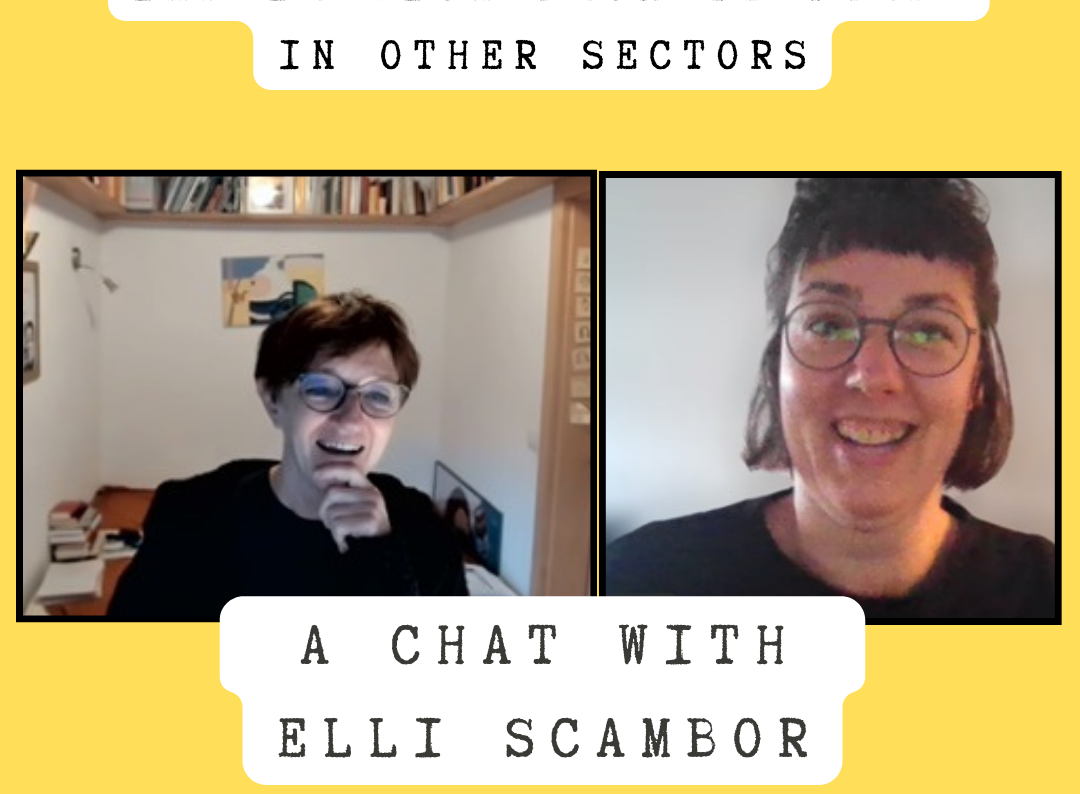What does research at a non-university institute that collaborates across Europe look like? What does it mean to manage Europe-wide collaborations with researchers and professional practice partners?
We’re on an interview tour to learn from (research) leaders in sectors beyond academia. This time, we made a virtual stop at one of Europe’s most innovative research institutes in the area of critical masculinity studies. It was founded in 2001 in Graz (as part of the Männerberatung Graz) by my interviewee, a sociologist and educational scientist who was awarded the Austrian state prize for women's studies, gender studies and equality in 2016. Head of the Institute for Masculinity Research and Gender Studies, Elli Scambor, gives us an insight into research and leadership beyond the university.
Q 1. Thank you for talking to us, Elli! Would you please describe your role and the work of your institute?
My job is very varied and is made up of different parts: I am managing the Institute for Masculinity Research and Gender Studies at the VMG in Graz, an institute that has been dealing with the concept of Caring Masculinities from the very beginning (since 2001). We carry out many studies and practical research projects on men and gender equality, on the connection between the fair distribution of work and protection against violence, and on the topic of sexualized violence and resilience to violence.
Another part of my work involves teaching at various universities and colleges in Austria and other countries. My work also involves providing lectures and workshops in different educational settings ... and a lot of traveling.
Networking and working on various advisory boards, e.g. the scientific board of the Koordinationsstelle für Geschlechterstudien und Gleichstellung at the University of Graz, are also part of my job.
And I am vice president of the Dachverband Männerarbeit Österreich, an umbrella organization for men's and boys' work in Austria, and a member of the GenderWerkstätte, a laboratory that connects with new theoretical developments, methods and educational offers in the field of gender-sensitive and diversity-oriented work.
Q 2. How does research and leadership in your field compare to working in academia?
Our work is very much tied to the funding possibilities of non-university social research. This means that, from the very beginning, we have carried out many international studies and practical research projects that are funded by the EU and co-financed at national level (federal, state). However, there are also studies that are funded exclusively by national funding bodies. And we are also repeatedly commissioned with projects and studies, for example by the City of Vienna or SOS Kinderdorf. This funding structure means that we are constantly on the move. It may be that we have a lot of work because we get a lot of projects and studies approved. But it can also be the case that funding doesn't materialize. Non-university social research is affected by these uncertainties and this shapes the management of an institute.
Q 3. How did you personally „learn“ leadership and what makes it interesting and challenging for you?
We have a participative leadership style. We all work together on our projects. Social researchers with many years of experience support newcomers. As head of the institute, I have to keep an overview. I have grown into this role, from study to study, from project to project.
Our studies are usually conducted together with partner organizations in different European countries. This is also exciting in terms of leadership, sometimes challenging, but all in all very enriching. We have to take into account the different country contexts in all our projects and are able to tie in with current developments in Europe. It goes without saying that our work is therefore sometimes characterized by tensions (e.g. between TERF and FLINTA). Taking the needs of all partners seriously, dealing with resistance and not losing sight of the goal of our joint work - this has worked quite well so far.
Q 4. How could University of Graz researchers engage with you?
Attend our events. Read our publications (https://vmg-steiermark.at/de/forschung/publikationen). Do an internship with us or work with us as part of an MSCA.
We thank the interviewee for being so open with us! We believe that research leaders can get a lot of inspiration from leaders of other sectors – and that there are benefits to exploring what lies beyond academia.
(Interview date: 18.11.2024, questions: Johanna Stadlbauer)
Next interview:
- Evelyn Walenta (Johnson & Johnson)
